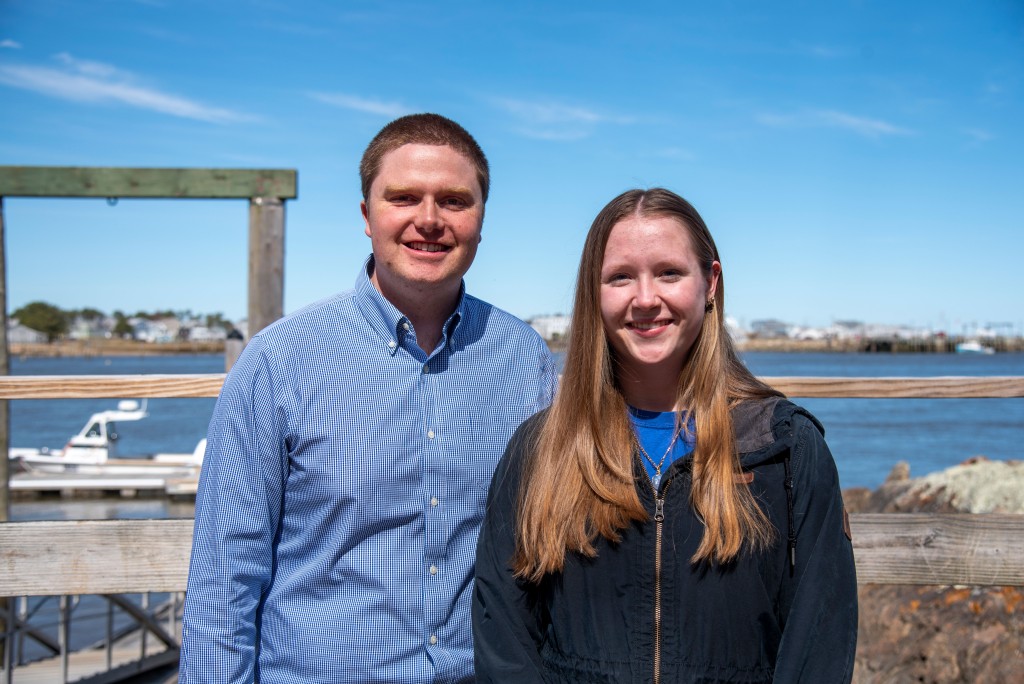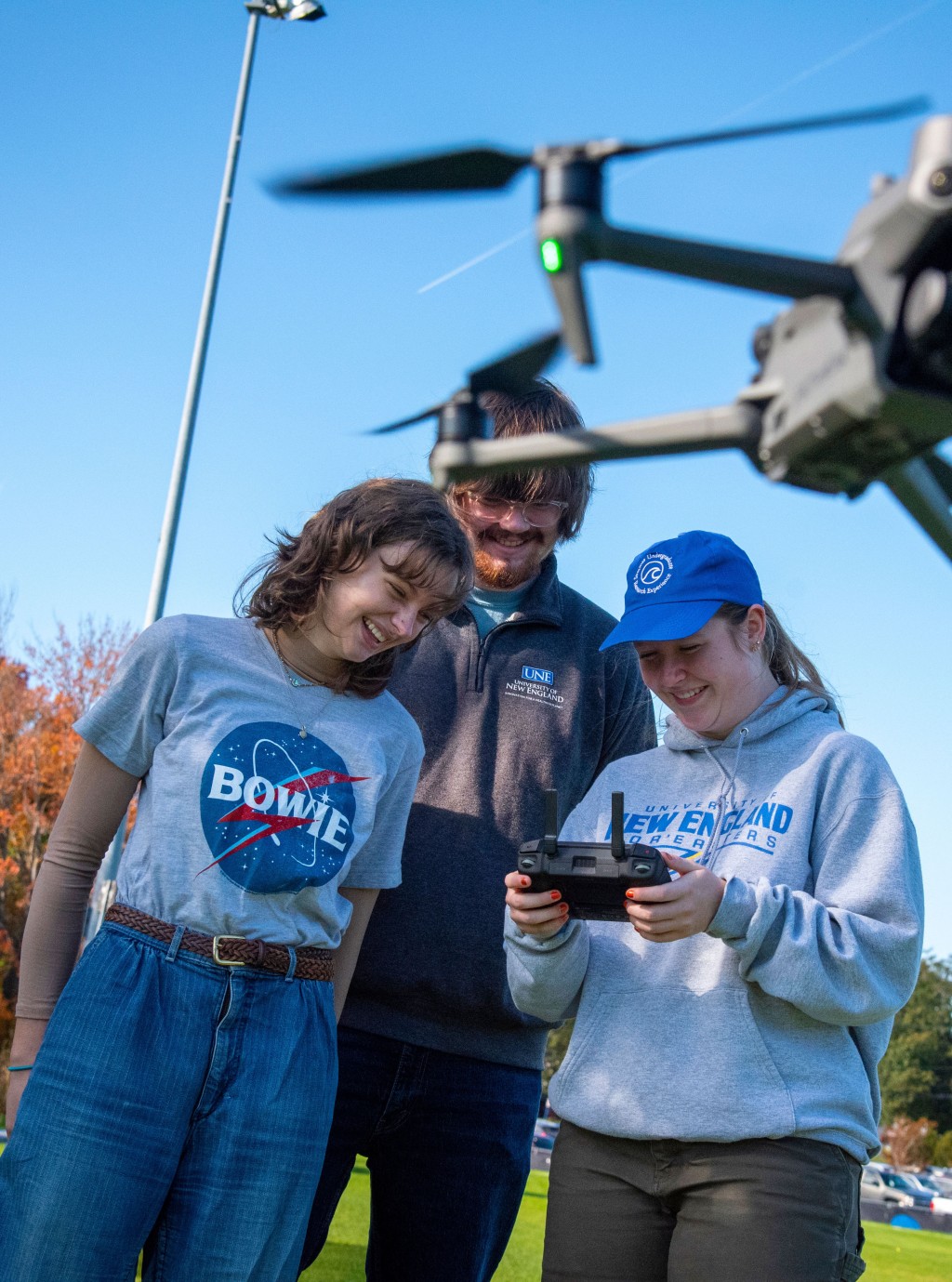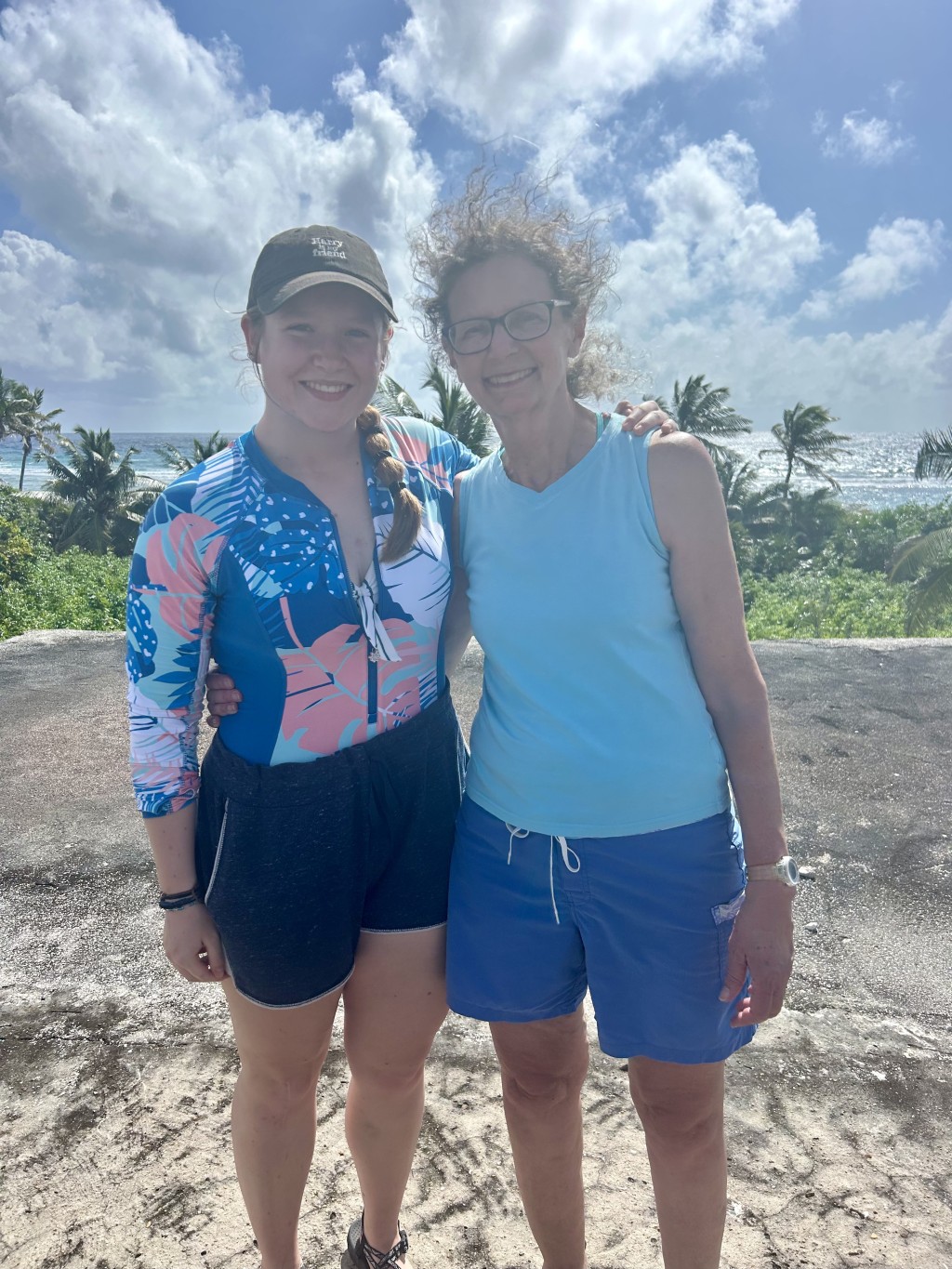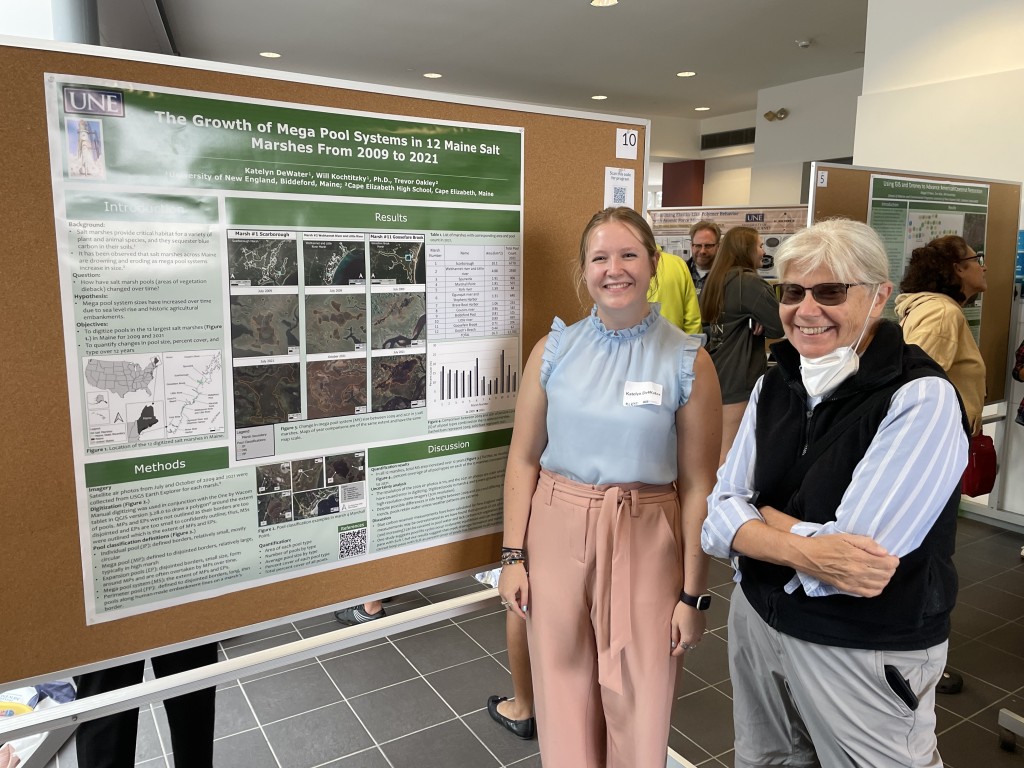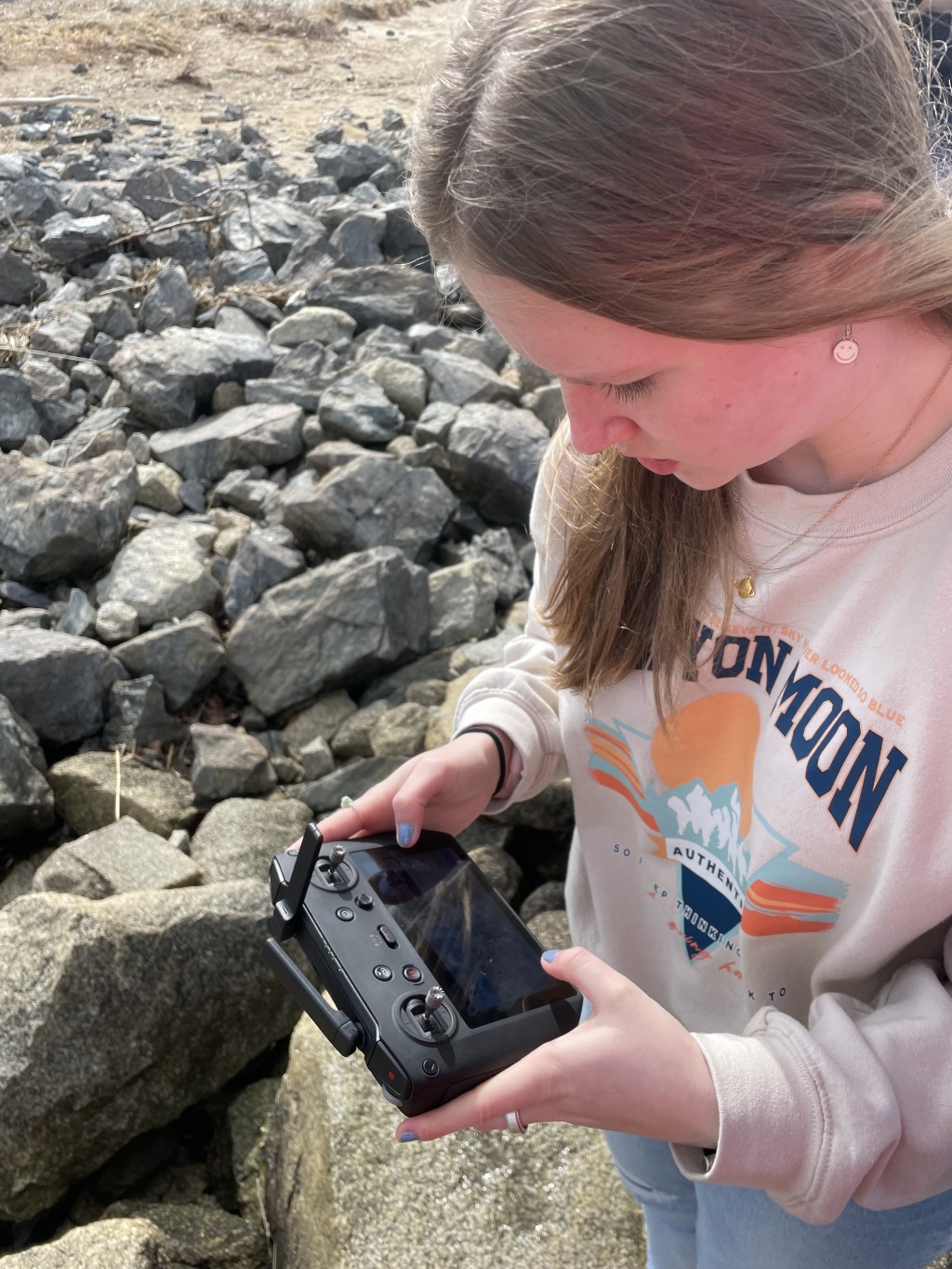Meet Katelyn DeWater, UNE's latest recipient of the Goldwater Scholarship
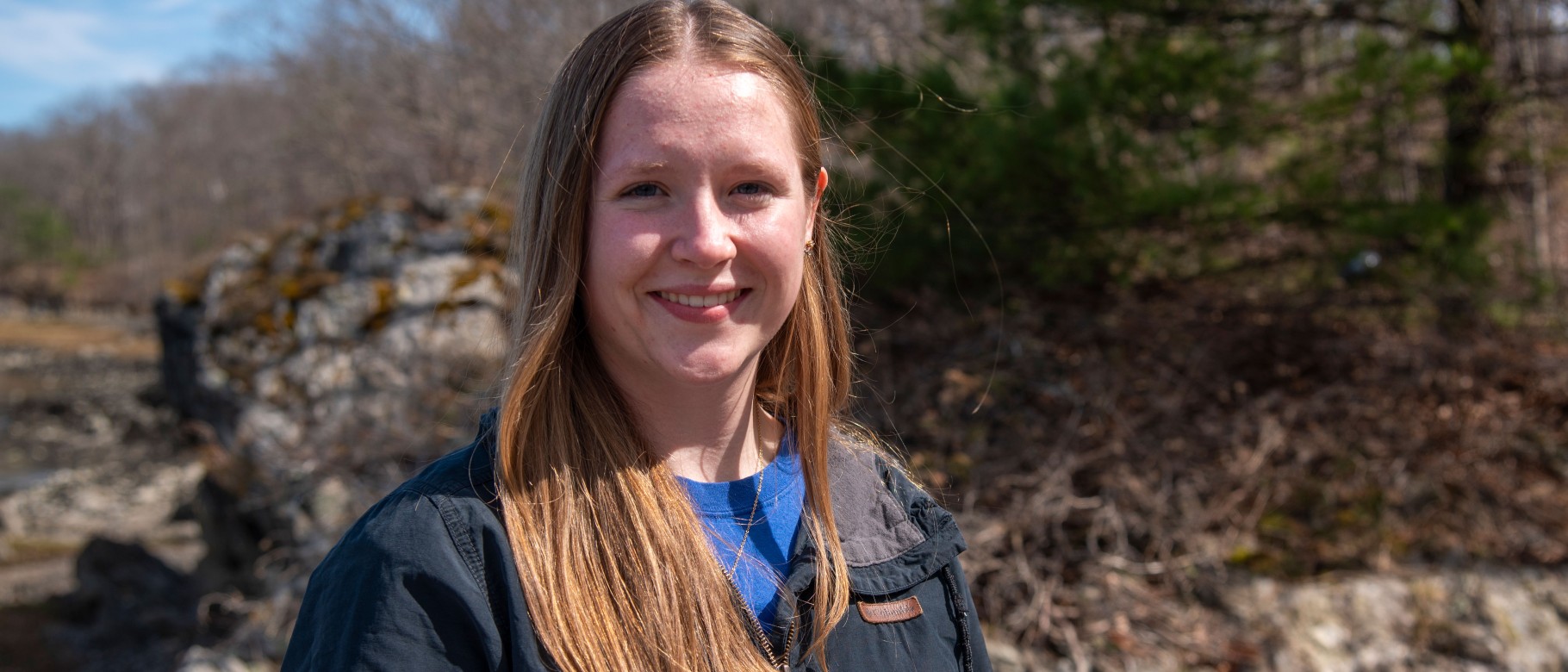
University of New England student Katelyn DeWater (Marine Sciences, ’25) is one of just three recipients from Maine to be awarded the Goldwater Scholarship for 2024.
DeWater, of Livonia, New York, joins a growing roster of UNE students who have been bestowed the prestigious scholarship. Since 2008, six others from the University have been granted Goldwater awards to pursue scholarly endeavors related to their chosen fields of study.
Established in 1986 in honor of former U.S. Senator and 1964 presidential candidate Barry Goldwater, the Goldwater Scholarship was created to encourage outstanding college sophomores and juniors to pursue research careers and foster excellence in the fields of mathematics, engineering, and the natural sciences.
This year, the foundation awarded 508 students with scholarships out of an estimated pool of over 5,000 college sophomores and juniors from 446 academic institutions.
DeWater is a student in the Coastal Research Lab under Will Kochtitzky, Ph.D., assistant professor of geographic information systems (GIS), and recipient of Summer Undergraduate Research Experience (SURE) funding from UNE to study the impact of climate change and sea level rise on coastal ecosystems in Maine, including salt marshes.
Her work in this area is part of nearly $944,000 in total grant funding to UNE from the Maine Natural Resource Conservation Program and the Maine Space Grant Consortium to monitor the restoration of salt marshes in Biddeford, and other nearby locations, in partnership with the Rachel Carson National Wildlife Refuge.
“Katie DeWater is one of the rare students who displays both extreme competence and dedication to her studies and research,” Kochtitzky wrote in his Goldwater recommendation letter. “I know that Katie will be wildly successful in whatever she puts her mind to. She has already demonstrated how she is applying a suite of research techniques to improve our understanding of climate change and ocean processes, and she has shown on multiple projects that she will be a future STEM leader in the world.”
In addition to her research in Kochtitzky’s lab, DeWater is the coordination and administration lead in UNE’s Aquarium Science and Conservation Lab. In her role, she trains new lab members, monitors lab practices, and plans meetings for the lab, which breeds clownfish for sustainable aquarium practices and provides students with hands-on opportunities to learn fish husbandry.
Most recently, DeWater traveled to Belize as part of a coral biology course under Associate Professor Jeri Fox, Ph.D., to study the health of coral reefs and establish a program to monitor them over time.
DeWater told the Goldwater Foundation she aspires to earn a Ph.D. in marine biology and conduct research in coral biology and geospatial sciences to understand how coral reefs are impacted by climate change. She spoke with the Office of Communications about her research experiences, and her answers below have been edited for clarity and/or length.
What was your reaction to being named a Goldwater Scholar?
I felt so honored and excited to be named a Goldwater Scholar. It is an amazing feeling and sense of accomplishment to know that the time and effort I have dedicated to research is being recognized. Earning this scholarship has only reinforced my passion for research with the purpose of understanding the impacts of climate change on coastal ecosystems.
I am incredibly grateful for all the research opportunities available to me here at UNE that have allowed me to develop foundational research skills that I will apply to future research projects and my career. I am especially grateful for the support, guidance, and encouragement I have received from my professors, particularly Dr. Kochtitzky and Dr. Fox, who have taken the time to share their knowledge with me.
Are you part of any other academic programs at UNE?
I have minors in both GIS and applied mathematics.
Are you a member of any clubs or athletics?
I am a member of the Scuba Club, Ocean Club, and Earth’s E.C.O. (environmental club).
Tell us about your GIS research.
The purpose of my research in Dr. Kochtitzky’s lab is to quantify how salt marsh pools have changed since 2009 on Maine’s marshes. Our preliminary results have indicated that salt marsh pools are continuing to expand on Maine’s marshes as a result of human impacts and increased inundation due to climate change.
These results support the need for marsh restoration projects to help marshes be more resilient to climate change. I am currently in the process of preparing a manuscript of these results for publication.
How have you been able to apply similar research principles to other research projects?
In the fall of 2024, I took the coral biology travel course with Dr. Jeri Fox. For the travel course, we learned about corals throughout the fall semester in a regular class setting, and then in early January, we went to Belize for two weeks to see the corals in person, and I was part of a team that collected data on the health of corals.
To do this, we photographed fluorescing corals with an underwater camera and filter system that we built in UNE’s P.D. Merrill Makerspace. From these photos, we will identify specific wavelengths of fluorescence as an indicator of coral health. We also swam photo transect surveys of the reefs and are using those photos to generate 3D models of the reefs.
Additionally, using a GPS system that I helped build, we recorded the location of the specific reefs that were surveyed. The purpose of this research is to return to the same reefs each year to quantify changes in coral fluorescence and percent cover to monitor reef health as the climate changes.
How have these research experiences impacted you and your goals?
Ever since I first learned about corals and how they are threatened by climate change in fifth grade, I have had a passion for researching and restoring reefs. Having the opportunity to research coral health in Belize was an absolute dream come true for me. It was an incredible experience to be able to design our own field equipment and to conduct surveys on coral health.
Have you presented any of your research?
I presented the coral fluorescence research at the College of Arts and Sciences (CAS) Research Symposium and at the Student Innovation Showcase at UNE’S Portland Campus for the Health Sciences in spring 2023. I will present this research again at the 2024 CAS Spring Research Symposium.
I presented my research on salt marsh pool expansion at the SURE Symposium in the fall of 2023. I also presented this research at the Maine GIS User Group conference in Freeport and the 42°: The North Atlantic Network conference hosted at UNE’s Portland Campus in the fall. I will present this research again in April at the New England Estuarine Research Society conference in Freeport and at the spring CAS symposium.
See Katelyn's research in action
Katelyn DeWater (Marine Sciences, ’25) and Professor Will Kochtitzky, Ph.D., use drones and GIS modeling to study the salt marsh ecosystem off the coast of the University of New England's Biddeford Campus. UNE's GIS drone and mapping research is conducted to address the ongoing concern that our salt marshes are being negatively affected by sea level rise.
